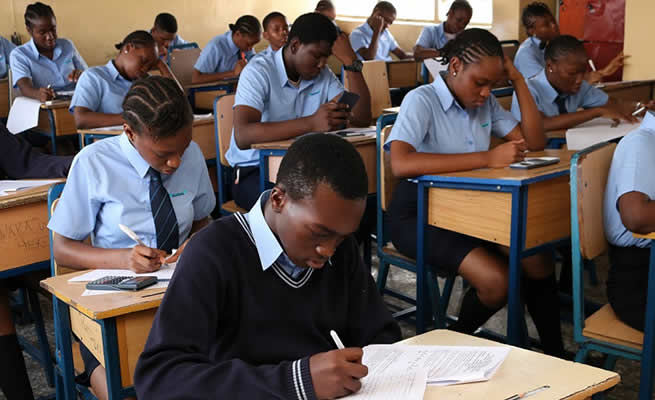The Department of Basic Education (DBE) and the civil rights organization Solidarity have reached a settlement resolving disputes over the Basic Education Laws Amendment (BELA) Act of 2024.
This agreement, facilitated by the National Economic Development and Labour Council (NEDLAC), concludes weeks of negotiations initiated after Solidarity sought approval to stage a protected protest over concerns with Sections 4 and 5 of the Act.
In September, President Cyril Ramaphosa signed the BELA Bill into law, placing on hold the contentious clauses of the Act for three months, in a bid to find solutions to the concerns around them.
READ MORE: Ramaphosa signs BELA Bill; sections still open for consultation
The bilateral settlement, signed on November 25, 2024, outlines key measures addressing Solidarity’s concerns.
The Minister of Basic Education Siviwe Gwarube emphasized that dialogue remains the cornerstone of resolving conflicts, highlighting the agreement as a milestone in fostering collaborative governance.
Minister Gwarube confirmed she would recommend to President Ramaphosa that contentious provisions of the BELA Act—specifically Sections 4(d), 4(f), and 5(c)—be implemented only after comprehensive national policies and regulations are developed to ensure legal clarity and inclusivity.
Central to the agreement is developing mechanisms to balance powers among national and provincial governments, school governing bodies (SGBs), and other stakeholders.
These policies will focus on:
- Managing deviations from school admission policies set by SGBs.
- Directing schools to add additional languages of instruction.
- Revisiting admission and language policies to align with constitutional imperatives, such as mother-tongue instruction and equitable access.
Minister Gwarube reiterated the commitment to safeguarding every learner’s constitutional right to basic education and their best interests, as mandated by the Constitutional Court’s precedents.
A multilateral agreement signed on November 27 between the DBE, the Presidency, and Solidarity formalizes the next steps.
Under this arrangement, Minister Gwarube’s recommendations will guide President Ramaphosa’s proclamation of the Act’s commencement terms.
Gwarube says NEDLAC played a pivotal role in facilitating the dialogue, which has been praised by all parties for its effectiveness.
The resolution reflects a broader consensus on ensuring educational reforms promote equity while respecting governance structures and community needs.
As the DBE works on policy and regulatory frameworks, the settlement is hailed as a victory for constructive negotiation, setting a precedent for future governance in the education sector.


